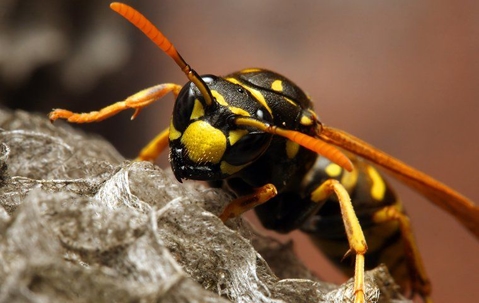Aptly named, yellow jackets are types of wasps with yellowish bodies and black markings measuring roughly 3/8 of an inch long. Compared to most types of bees, yellow jackets are thin and have less hair. The eastern yellow jacket (Vespula maculifrons) is the most common type in North Carolina.
Yellow jackets are types of social wasps that live in large colonies. Unfortunately, yellow jackets often create nests in residential areas near homes, which poses potential safety risks, particularly for those who abruptly disturb a nest.
Are you wondering how to get rid of yellow jacket nests? Based on the possible risks involved, local property owners are generally discouraged from trying do-it-yourself methods of handling these nests. Consult a pest management professional with experience with yellow jacket removal in Elizabeth City.
Understanding Yellow Jackets: Behavior And Habitats
Yellow jackets typically form underground (subterranean) nests beneath fallen trees or other types of debris or vegetation. Eastern yellow jacket colonies will often contain several thousand members. Larger yellow jacket nests may generate many queens, which will venture off to form new colonies during the spring.
Each queen will initiate a new nest by gathering food and laying eggs. Yellow jackets generally will not move into abandoned nests. Unlike females, male yellow jackets have long antennae and don’t sting.
When do yellow jackets in Elizabeth City come out from their nests? As with many types of wasps, yellow jackets are most active during the day and retreat to their nests at night. A common daytime activity includes foraging for food such as nectar or berries. Yellow jackets will target both ripened and rotten fruit.
Are yellow jackets beneficial to the overall environment? Unlike many types of flying pests, yellow jackets typically play a minimal role in pollination. However, a report from the Department of Entomology at Clemson University’s Cooperative Extension Service indicates that yellow jackets help protect fruits, vegetables, and other crops by feeding on caterpillars, flies, and other pests.
Dangers Of Yellow Jacket Stings: Allergic Reactions And Health Risks
Expect yellow jacket colonies to defend their nests when disturbed aggressively. Yellow jackets can sting multiple times and will often attack in swarms. These stings are generally painful and may cause the skin to itch, redden, or swell.
Some individuals will experience more adverse allergic responses—for example, coughing, nausea, hives, or tightness in the chest.
How do you treat a yellow jacket sting? First, clean the area of the skin with soap and water and apply a cold pack to limit swelling. A mild, over-the-counter pain medication should help, and try antihistamines if itching persists.
Although not common, extreme reactions that need medical attention are possible—for example, cardiopulmonary effects such as hypotension or pulmonary embolism.
Creating A Yellow Jacket-Free Zone: Tips For Prevention And Protection
What are some of the most effective prevention strategies? Some of the best ways to keep yellow jackets away from your property include:
- Keep the yard area free of unnecessary debris, including fallen trees or tree stumps.
- Fill in ground holes that might serve as potential nesting sites.
- Clean up yard, patio, and deck areas thoroughly following cookouts.
- Sweets and proteins draw yellow jackets, so keep all trash bags inside garbage receptacles with lids to prevent access.
- Some research indicates that plants, including thyme, eucalyptus, and spearmint, have repellent properties.
Adhering to the best preventative practices is helpful, but once you identify a nest's location on your property, the best course of action involves reaching a local pro.
Professional Yellow Jacket Control: When To Seek Expert Help
Have you noticed a nest filled with yellow jackets or similar types of stinging insects on your property? Make the smart move by contacting a professional who understands how to safely perform yellow jacket removal services in Elizabeth City.
The family-owned and operated professionals with Albemarle Termite & Pest Control have many years of experience providing stinging insect control services for customers in Elizabeth City. Our Service Professionals are properly equipped to remove these nests and will treat the area as a deterrent to help prevent other nests in the future. We often deploy liquid products, which can treat nests in trees and other hard-to-reach areas of the property.
Our organization remains committed to maintaining a highly-trained staff, competitive pricing, and delivering superior customer service. We also understand the importance of adopting some of the more innovative and eco-friendly products and application methods. The North Carolina Pest Management Association (NCPMA) and other organizations recommend many of these, who provide support, advocacy, and education in the pest control industry.
For further information about our services, contact our Albemarle Termite & Pest Control office today.

